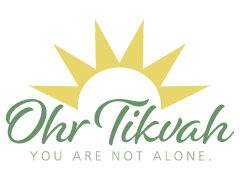I have been in recovery for 384 days.
What is recovery, you might ask? I understand that question; I didn’t know either up until a few months ago. Here are a few of what recovery means to me:
-Recovery to me means eating 6 times a day, no matter how or what I am doing.
-Recovery to me means accepting what has happened in the past and simultaneously taking responsibility for my future.
-Recovery to me means being open to new ideas and knowing that there can be more than one truth at any given time.
-Recovery to me means being in the moment and allowing myself to relax; instead of constantly obsessing and analyzing everything around me.
-Recovery to me means riding through the urges; surfing the full wave of emotion without letting it overpower and drown me while I am feeling the feels.
-Recovery to me means embracing my flaws, and taking my power back. It is using my voice to ask for what I need or want, and setting the boundaries while doing so.
-Recovery to me means having compassion towards my thoughts and struggles, and feeling proud of the strength that I have to get up after every time I fall.
-Recovery to me means connection. And that is precisely why I am sharing all of this today.
The opposite of an eating disorder is not eating; it is connection. Connection to yourself, and to the people around you.
I have been blessed to experience what true, deep, meaningful connection feels like. What is ironic is that the very thing that we need to recover is what is taken away from us due to the stigma.
I’m not going to lie; I understand exactly why parents are weary to send their children to get help outside of our tight-knit community. It is putting them into a world where they are forced to lose their innocence.
However, we don’t have a replacement for this. We isolate the ones suffering. Yes, they might be seeing a therapist and have a treatment team. That is not the antidote though. Connection comes from having people around us that truly understand, that share the journey with us; as they know the ups and downs of recovery – they are going through it themselves.
Vulnerability has to happen. It is one of the major building blocks of recovery. And it has to happen somewhere. If we want those that are struggling to recover according to how we were raised, we have to make an environment that is conducive towards that. We need to build a community where we can talk about this openly, and connect those that are struggling with each other in a healthy way.
Go ahead, speak about me at your Shabbos tables. I know that will happen.
I also know that I am starting to feel pride in where I’ve been. This is the opposite of what deserves shame. I am not messed up. I am strong. I can carry my head with pride. I have worked so hard to become who I am today.
I am truthfully lucky that I am experiencing this challenge at such a young age, before getting married and having children. I know myself at 21 years old better than most people ever will. I know how to take care of myself. I know what I need in order to live an amazing life, and not just survive through it.
My journey is far from over. Every single day is still a battle. The only way to recover is to allow myself to get worse, to push through no matter how badly I feel. Unless you have been there, there is absolutely no way to understand the struggle and pain of choosing recovery every single second of the day. I am still doing the work; I am still in therapy.
And connection has been my savior throughout this journey. It has allowed me to see others that have gone through the same thing as me, and made it out to the other end. It has allowed me to see that there is more to life than depression and anxiety, and more to life than spending every second of the day focusing on food. It has given me the gift of being supported and supporting others at the same time. It has given me the gift of seeing others take their struggle and use it to help those who are still in the dark. And it has given me the gift of hope, that one day I too can be a wounded healer.
Every person struggling deserves this chance. A chance to see that they aren’t alone, that they aren’t messed up, that they aren’t crazy for going through this. I know, because I’ve been there. I’ve felt the stigma within me. And it is the time to break the stigma.
And this – this is how we break the stigma, simply by starting the conversation and using our voice.
All the people who have helped me along my journey have said that the greatest show of gratitude would be to take what I have learned, and pay it forward. That is all I am trying to do right now. Because I owe my life to them. And if I can help just one person feel less alone, it makes my journey worth it.
Rosie
